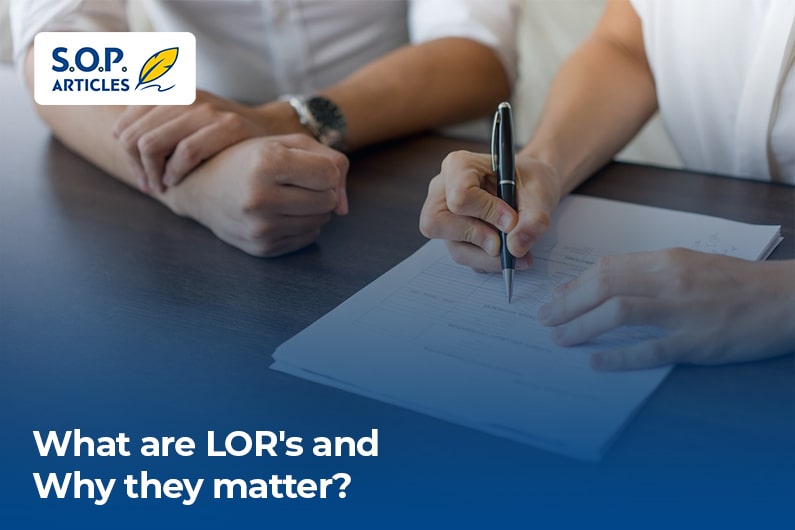Introduction
In the realm of college applications, job hunts, and scholarship opportunities, the significance of Letters of Recommendation (LORs) cannot be overstated. These documents provide a glimpse into an applicant’s character, abilities, and potential from the perspective of someone who has worked closely with them. This comprehensive guide aims to demystify LORs, shedding light on their purpose, types, essential components, and the pivotal role they play in shaping an individual’s academic and professional journey.
Understanding Letters of Recommendation (LORs)
Letters of Recommendation, commonly referred to as LORs, are written testimonials provided by individuals who have interacted with the applicant in a professional, academic, or personal capacity. These letters serve to endorse the applicant’s qualities, accomplishments, and potential, adding depth and credibility to their application. LORs offer a unique perspective that cannot be captured through grades, resumes, or personal statements alone.
Types of Letters of Recommendation
- Academic LORs: These letters are typically written by teachers, professors, or academic advisors who have first-hand experience with the applicant’s academic performance, classroom participation, and intellectual capabilities. Academic LORs highlight qualities such as analytical thinking, work ethic, and contribution to the learning environment.
- Professional LORs: In a job or internship application, professional LORs are provided by supervisors, managers, or colleagues who have worked alongside the applicant. These letters shed light on an individual’s work ethic, skills, teamwork abilities, and overall suitability for the position.
- Character LORs: Character references can be provided by individuals who know the applicant on a personal level, such as mentors, community leaders, or coaches. These letters focus on the applicant’s personal qualities, ethics, and integrity.
Key Components of an Effective LOR
1. Introduction and Relationship: The letter should begin with a brief introduction of the recommender and their relationship with the applicant. This sets the context for the reader and establishes the recommender’s credibility.
2. Specific Examples: Effective LORs include specific anecdotes, instances, or projects where the applicant demonstrated exceptional qualities. These examples add depth to the recommendation and make it more compelling.
3. Highlighting Strengths: Recommenders should focus on the applicant’s strengths, whether they are academic, professional, or personal. These strengths could include leadership skills, problem-solving abilities, creativity, or dedication.
4. Comparative Insight: Providing a comparison between the applicant and their peers can give the recommendation more context. This can help admission committees or employers understand the applicant’s relative standing.
5. Relevance to the Application: The content of the LOR should be tailored to the specific application. It should highlight qualities that align with the requirements of the program, job, or scholarship being pursued.
6. Constructive Critique: While LORs are generally positive, including a minor area of improvement or growth can portray the applicant as open to feedback and willing to learn.
Why LORs Matter
1. Holistic Perspective: LORs provide a holistic view of an applicant beyond their test scores or qualifications. They showcase qualities that might not be evident from other application components.
2. Credibility and Validation: LORs offer an external validation of the applicant’s abilities and character. Positive endorsements from credible sources enhance the applicant’s credibility.
3. Differentiation: In competitive environments, well-crafted LORs can set an applicant apart from the crowd. They can demonstrate why an applicant is uniquely suited for a particular program or position.
4. Personal Touch: LORs humanize the application process, offering insights into the applicant’s personality and interpersonal skills.
5. Decision-making Factor: In situations where candidates have similar qualifications, LORs can be the deciding factor that sways the decision in favour of one applicant over another.
Conclusion
Letters of Recommendation hold a vital place in the world of applications and assessments. They provide a personalized perspective that is crucial for admission committees, potential employers, and scholarship panels to understand an applicant’s true potential. A well-structured LOR, filled with specific examples and tailored to the context, can significantly enhance an applicant’s chances of success. As you embark on your academic or professional journey, remember that the power of LORs lies not only in the words on paper but in the lasting impression they create in the minds of those who evaluate your application.











